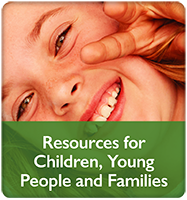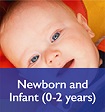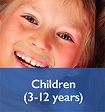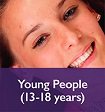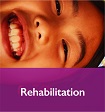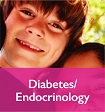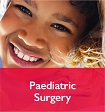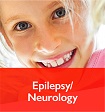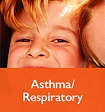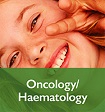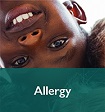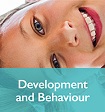Oncology
The Tasmanian Paediatric Oncology Service is a specialist state-wide service. Our team works together to ensure holistic care for children and young people with malignant blood cancers, solid cancerous tumours of the muscles, bones or organs and brain tumours.
Who we care for
We provide clinical assessment, diagnosis and treatment for childhood cancer and support children, young people and their families or caregivers throughout their journey.
Our service is based in the Royal Hobart Hospital but, where possible, the oncology team communicates with services closer to the child's home to organise treatment and reduce the need to travel for necessary care. If more complex treatment is required and it's unavailable in Tasmania, we refer to the Royal Children's Hospital and Peter MacCallum Cancer Centre in Melbourne. Care is then shared between these interstate services and the Tasmanian Paediatric Oncology Service.
Your oncology team usually begins with
| The child (you) and family/caregivers | You and your parents/caregivers are important members of our health care team, you look after yourself and your condition every day. You can tell us about your health and how your condition affects your everyday life. We will include you in decisions about your health. |
| Oncology nurse | The specialist oncology nurses are your main contact point. Depending on your needs, the nurse may provide assessment, education and support, giving you the information you need to care for your condition. They will help you to organize your care and assist with communication between team members. You can talk to them if you have questions or concerns. |
| Paediatric oncologist | The paediatric oncologist is an expert in the diagnosis and treatment of childhood cancers. They will review your health at each clinic appointment, make sure you receive the care and tests you need and will be involved in making decisions about your care. |
| Dietitian | The dietitian will assist in the assessment and management of your nutritional needs related to your condition. They will talk to you about your diet and make recommendations to support your health and growth. |
| Pharmacist | The pharmacist will help you understand your medication and keep your medication plan as simple, safe and helpful as possible. |
| Social worker | Social workers can provide counselling and teach skills to help you cope with problems with your health, relationships or circumstances. They can help you understand your rights and help to advocate for you. |
| Paediatrician | Your paediatrician is a key member of your health care team, they provide specialist medical care and look at your health holistically. Your paediatrician often takes the lead in providing a diagnosis or organizes referrals for tests or assessment with other health professionals. |
| General practitioner (GP) | Your GP takes care of your general health needs within the community. They often provide initial assessment and can refer to a paediatrician if more specialised care is required. Your GP can provide care in between more specialist appointments and assist with prescriptions and community care plans/action plans for your family or school. They will receive updates from other professionals. |
Depending on individual needs the following health professionals may also provide care
| Psychologist | A psychologist works with you to understand the impact your condition has on your life and helps you to overcome challenges, change behaviour and improve your mental health. |
| Physiotherapist | Physiotherapists are experts in musculoskeletal assessment and treatment. They can help with motor skills (such as walking), joint problems, pain and fatigue. |
| Occupational therapist (OT) | Occupational therapists help people to participate in activities they find meaningful and daily activities that they need to do. These activities include self-care (such as mealtimes or getting dressed), play, learning, school, work, leisure, hobbies and spending time with friends and family. Occupational therapists assess and assist with movement, thinking, sensory processing and equipment. |
| Dietitian | The dietitian will assist in the assessment and management of your nutritional needs related to your condition. They will talk to you about your diet and make recommendations to support your health and growth. |
| Neuropsychologist | A neuropsychologist provides assessment to understand how conditions affecting your brain may impact learning, memory, behaviour and decision-making. |
| Rehabilitation team | The rehabilitation team help children and young people to learn or regain skills and independence related to everyday activities. They work with you to set goals that aim to enhance the quality of life. (link to rehabilitation area) |
How to access the oncology service
For cases of suspected cancer or for concerns about patients undergoing treatment for cancer your GP or health professional can contact the oncology team directly via the Royal Hobart Hospital switchboard.
A referral from a GP or paediatrician is required to access the oncology service. Referrals can be submitted by following the directions on the Department of Health, Tasmania's outpatient clinics website.
Other supports >>
| School | Through the Education Department, schools can access extra support or services to meet health and disability needs. It is important to discuss any individual requirements with school staff. |
(Strong Families Safe Kids) | Some families may require increased support through a community organisation due to the complexity of their situation or other vulnerabilities. |
Contact us >>
Royal Hobart Hospital
Paediatric Outpatients
Lower Ground
Argyle Street Hobart Tas 7000
Phone: (03) 6166 0000
Fax: (03) 6173 0469
For all general clinic enquiries please contact the Paediatric Outpatient Department on (03) 6166 0000.
The Paediatric Oncology-Haematology Clinical Nurse Consultant can be contacted directly to discuss referrals and appointments.
Contact details:
Phone: 03 6166 8045
Email: rhhpaedonc@ths.tas.gov.au
(please note that this email address is only monitored during business hours)
Disclaimer: this website contains general health information and does not replace the advice of a health professional.


